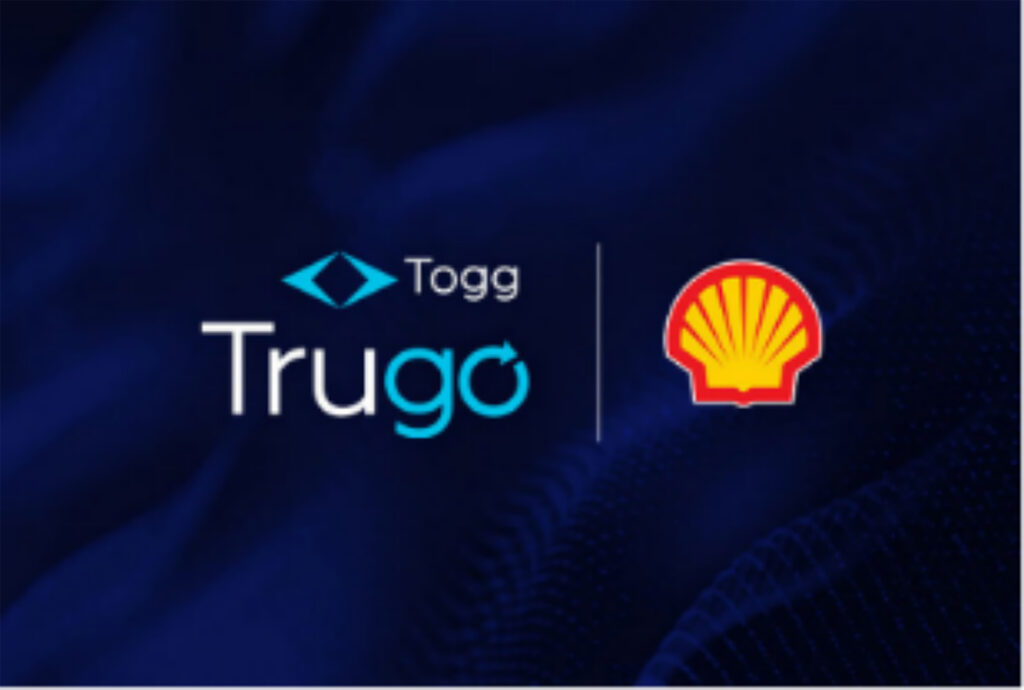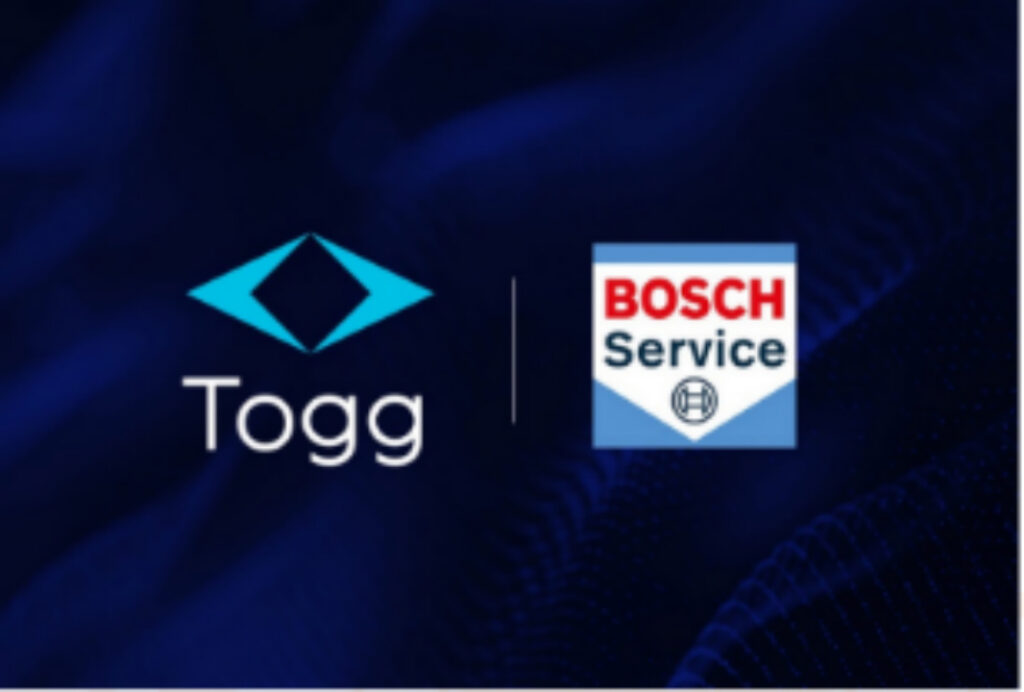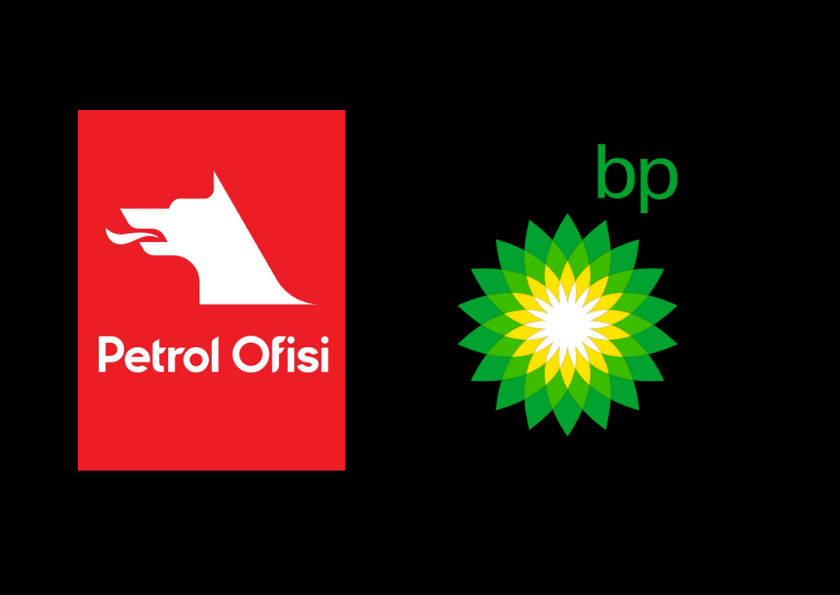Introduction
Welcome all for another issue of the Paksoy Turkish Competition Law Newsletter series. As the leaves fall, this time around it is the 2024 Autumn Edition. Within this edition, we are reviewing a series of recent events that transpired within the Turkish competition landscape, including regulative developments and significant Competition Board (“Board”) precedents.
As was the case within the Summer Edition of our Paksoy Turkish Competition Law Newsletter series, we are once again looking at a recent amendment to the regulations guiding the Turkish antitrust universe as we review the Turkish Competition Authority’s (“TCA”) newly published Draft Guidelines on Competition Infringements in Labour Markets.
Speaking of recent amendments made within the Turkish antitrust landscape, arguably none have been more ever-present for competitors than the technology undertakings exception introduced in recent years. On this subject, we are analysing the question of the scope and limits of this exception, in light of some recent merger control filings.
Moving on, we are analysing the burgeoning relationship between antitrust and generative artificial intelligence, in view of the recent steps taken in regulating such field by competition law authorities in various jurisdictions around the globe.
Lastly, we are reviewing numerous recent precedents of the Board; including two significant individual exemption decisions pertaining to electric vehicles and their charging, as well as a pivotal acquisition in the port terminal sector that were all deemed by the TCA amongst its most notable decisions in its 2023 Annual Report. In addition, we are delving into a significant transaction in the Turkish fuel sector which involves BP’s key assets in Türkiye, while also taking a detailed look at a decision involving negative sole control.
To sum up, this Autumn Issue is intended as an overview of the critical recent developments and significant Board precedents moulding the Turkish antitrust landscape. We hope you enjoy and find this Autumn Issue helpful.
Togan Turan
Landmark decisions by the TCA in the EV sector: Trugo & Shell and Togg & Bosch
by Gülçin Dere , Oğulcan Halebak
The TCA has issued two significant exemption decisions that provide valuable insights into how businesses can navigate complex competition issues while fostering innovation in renewable-energy-related sectors, more specifically relating to electric vehicles.[1]

-
Trugo & Shell: collaboration in the electric vehicle charging market
The first decision involved Trugo Akıllı Şarj Çözümleri Sanayi ve Ticaret A.Ş. (“Trugo”), a subsidiary of Türkiye’nin Otomobili Girişim Grubu Sanayi ve Ticaret A.Ş. (“Togg”) and Shell&Turcas Petrol A.Ş. (“Shell”), whose Charging Network Operators Collaboration Agreement and Service Provision Agreement were reviewed by the TCA. The collaboration aimed to develop a nationwide electric vehicle (“EV”) charging network across Shell-branded fuel stations, with each party establishing and operating its own charging stations but providing services to customers through their respective platforms. Within the scope of the Service Provision Agreement, Trugo aimed to provide Charging Point Operator Management Platform, Mobility Service Provision and Call Centre Customer Services to Shell in relation to the operations of charging devices.
The Charging Network Operators Collaboration Agreement concluded between Trugo and Shell is considered a horizontal agreement, while the Network Operating Agreement to be signed between Trugo, Shell, and a Shell dealer that is also the location owner is considered as a vertical agreement. The TCA evaluated the agreements based on both horizontal and vertical competition elements, given that Trugo and Shell would each manage separate operations while collaborating on charging network services. Despite potential concerns about exclusivity clauses and market impact, the TCA determined that the collaboration will have limited effect on the market in the current situation and agreements would enhance service efficiency and improve consumer choice, without creating significant barriers to entry for other competitors.
Trugo and Shell have secured the necessary individual exemption under Article 5 of Law No. 4054 on the Protection of Competition (“Law No. 4054”), ensuring their compliance with competition law and enabling them to move forward with their ambitious plans to expand Türkiye’s EV infrastructure. This decision not only clears the way for the growth of the EV market but also sets a benchmark for similar future collaborations in the energy sector.

-
Togg & Bosch: hybrid after-sales service model
The second exemption decision involved a collaboration between Togg and Bosch Sanayi ve Ticaret AŞ (“Bosch”), concerning Togg’s hybrid after-sales service model for its EVs. The agreements, which included a Global Service Network Agreement and an Authorized Chain Service Agreement, required an individual exemption analysis due to the current and potentially competitive nature of both companies in the vehicle repair and spare parts markets.
Togg and Bosch sought to develop a service infrastructure for Togg through utilising Bosch’s existing car services, yet concerns arose around potential anti-competitive information exchange and selective distribution practices. The TCA carefully reviewed the agreements under Block Exemption Communiqué on Vertical Agreements in the Motor Vehicles Sector (Communiqué No. 2017/3), and after assessing the competition risks, concluded that the collaboration met the conditions for an individual exemption under Article 5 of Law No. 4054. The exemption allows Togg to establish a robust after-sales service network, ensuring high-quality service for its customers while maintaining market competition.
These decisions demonstrate the TCA’s careful evaluation of collaborations that involve both horizontal and vertical elements and are believed to signal approval for innovative solutions that serve consumer interests while maintaining market competitiveness.
Both the Trugo-Shell and Togg-Bosch exemptions, which were handled by Paksoy, were featured in the TCA’s 2023 Yearly Report[2] among its most notable decisions. Their inclusion also highlights the significance of these cases in setting a standard for future collaborations within Türkiye’s rapidly evolving energy and automotive sectors.
Merger between DP World and Evyap Port receives green light from the Board
by Kansu Aydoğan Yeşilaltay , Selen Toma
The Turkish Competition Board recently issued a landmark decision (“Decision”) conditionally approving the transaction involving global port operator DP World FZE (“DP World”) acquiring a controlling interest in Evyap Deniz İşletmeciliği Lojistik ve İnşaat Anonim Şirketi (“Evyap Port”).[3] Paksoy as the strategic counsel helped DP World to secure a conditional clearance in Phase I review. The Decision signifies a pivotal milestone in the port terminal sector and is also recognised as one of the standout decisions rendered by the Board in 2023, as highlighted in the TCA’s 2023 Yearly Report.[4].
The Decision involves a complex transaction where DP World acquired a controlling 58% stake in Evyap Port (“Transaction”) and concurrently, Evyap Holding (“Evyap”) acquired a 42% stake in Yarımca Port (“Yarımca Port Transaction”), culminating in a merger under DP World’s sole control. The Board’s approval was based on a comprehensive analysis of the transaction, from the nature of the transaction to an in-depth competitive assessment that included both horizontal and vertical market impacts, as well as the commitments of the parties. The Transaction secured the Board’s clearance based on a number of considerations.
Nature of the transaction. The Board provided a comprehensive analysis of the veto rights established under the shareholder’s agreement and determined that the merged entity would fall under the sole control of DP World. As a result, the Transaction required the Board’s approval as the turnover thresholds were exceeded, while the Yarımca Port Transaction and the merger did not trigger a change in control and, therefore, were not subject to approval.
Affected markets. The definition of the affected market and its precise geographical scope required an in-depth analysis by the Board. The horizontally affected market has been broadly categorised as ‘terminal services for container handling’ which is further segmented into ‘container handling for transit traffic’ and container handling for hinterland traffic’. The geographic boundaries for the markets of terminal services for container handling and ‘container handling for hinterland traffic’ are broadly defined as the ‘Marmara Region’, with a further segmentation and more precise focus on the ‘Northeast Marmara Region’. For ‘container handling for transit traffic’, the geographic market extends potentially to Türkiye and neighbouring countries, although an exact geographic market has not been defined. Concurrently, the vertically affected markets, identified due to ‘feeder services’ of DP World and ‘terminal services for container handling’ of Evyap Port, have been geographically scoped to Türkiye and more narrowly the Marmara Region, without a precise geographic market definition due to DP World’s low market shares in feeder services.
Horizontal concerns and competitive analysis. In its comprehensive evaluation, the Board scrutinised the market shares of DP World and Evyap Port as well as their competitors. The Board’s analysis led to several key conclusions. First, the merger would consolidate two of the three largest market players, the other of which is Yılport, under a single control structure, increasing market concentration. This level of concentration is considered to have a potential to limit competition in the short term, as it is unlikely that other players will be able to challenge the newly merged entity (or Yılport) effectively. Looking ahead, the medium- to long-term outlook suggests that ports like Safiport and Beldeport, given their strategic locations and robust infrastructures, are expected to provide substantial competitive pressure. Despite the horizontal concerns and the Board’s conclusion that although the transaction might lead to increased concentration levels within the framework of the Horizontal Guidelines based on HHI levels, the Board assessed that significant impediment of effective competition through coordination effects in the horizontally affected market is unlikely. This conclusion was supported by several factors: the presence of motivated competitors with the capacity to challenge the merged entity, idle capacities at various ports, the capability of buyers to diversify their supplier relationships, and significant buyer power in the market.
Vertical concerns and competitive analysis. The Board evaluated the implications of the merger within vertically affected markets, and the analysis revealed that the market share held by DP World in feeder services is minimal, and the overall market concentration levels remain well below the thresholds outlined in the Non-Horizontal Guidelines. Consequently, the Board determined that the merger is unlikely to raise competitive concerns in terms of vertical aspects. This assessment underscores the limited impact of the merger on the competitive dynamics of these services, ensuring that the transaction does not distort fair competition or hinder market entry in these segments.
Commitments. To relieve the Board’s concerns on horizontally affected markets arising from the Evyap Port transaction, DP World offered commitments to ensure that the concerns were addressed. In response to the horizontal concerns identified from the merger of DP World and Evyap Port, DP World offered several commitments to mitigate potential competitive issues. The commitments include safeguards across various operational aspects, and briefly that is: (i) price regulation, ensuring that the port services tariff does not exceed the U.S. Consumer Price Index increase for 36 months; (ii) operational fairness, managing terminals on a common-user basis to prevent discriminatory practices; (iii) contractual protections, committing not to terminate existing contracts without substantial breach, with oversight by the TCA. These commitments were viewed as effectively addressing the concerns associated with DP World’s acquisition of Evyap Port, helping to eliminate any potential risks.
Conclusion. The Board acknowledged that while the Transaction could have some impact on competition, it granted conditional clearance, recognizing that the well-structured commitments provided by DP World effectively address the concerns and ensure a competitive environment for the stakeholders.
Draft of long-awaited labour market guidelines nears release
by Gamze Boran, Onur Okur
On 16 September 2024, the TCA revealed its long awaited Draft Guidelines on Competition Infringements in Labour Markets (“Draft Guidelines”) and opened them to public review until 27 September 2024.
At first glance, the long-awaited draft does not appear to substantially extend beyond the Board’s existing precedent on labour markets where it has established that (i) wage-fixing agreements and (ii) no-poach agreements are considered by-object violations and amount to cartel violations, which aligns with the stance of European Commission’s (“EC”) Competition policy brief on Antitrust in Labour Markets (“Policy Brief”) published on 3 May 2024.
However, the Draft Guidelines provide valuable insights into interpreting antitrust restrictions in the labour markets, particular in relation to the following points:
- The Draft Guidelines suggest that the Board intends to define the concept of ‘competitively sensitive information’ in the labour market very broadly, covering information on all working conditions of employees, including but not limited to wages, additional payments, place and time of the work, working hours, leave entitlements, mid-term breaks, benefit payments for marriage, birth, education, food, disability and death, and notably, non-compete obligations.
- The Draft Guidelines have a special focus on potential anti-competitive effects of information exchanges conducted through third parties, such as independent market research firms or private employment agencies. As is known, many market stakeholders receive benchmarking services from public or commercial third-party service providers of different structures and types in order to determine employment policies under already signed long-term contracts for service procurements. This indicates that intermediary human resources (“HR”) firms and the exchanges of information facilitated by such entities may be subject to increased scrutiny by the Board, and that scrutiny will focus particularly on assessing the anti-competitive impact of such data-handling practices. This is also in line with the investigations currently being carried out by the Board against certain HR firms.[5]
- The Draft Guidelines also introduce certain criteria for labour market restrictions to be considered ancillary restraints. Although these criteria are broadly consistent with those outlined in the merger guidelines, the criteria in the Guidelines may facilitate a more established application of the ancillary restraints doctrine, particularly in the context of vertical agreements. On the other hand, the fact that the Guidelines do not support and further clarify ancillary restraints criteria with positive or negative examples creates uncertainty for stakeholders with respect to certain commonly utilized commercial arrangements. Therefore, additions on these points will be very valuable for practitioners for foreseeing how the TCA will address competition assessment at certain important points, where the current draft is silent. All in all, it is evaluated that the explanation of the concepts of direct relevance, necessity and proportionality especially through different examples on vertical agreements may eliminate certain uncertainties in the markets.
Most notably, the Draft Guidelines lay the foundation for the Board to examine labour markets in both merger control reviews and abuse of dominance cases. The Draft Guidelines emphasise the significance of abusive exclusionary practices and market foreclosures in labour markets, indicating that the dominance test for the relevant undertaking will be conducted both in (i) the relevant product/service market and (ii) the labour market. From a merger control perspective, however, the Draft Guidelines lack clarity on several key issues related to aspects of the labour market as competitive parameters, including on the question of restrictions on the employment of key employees in vertical agreements and in which cases restrictions could be classified as ancillary. The Draft Guidelines also do not address whether employee transfers could be viewed as killer acquisitions or how the relationship between labour market considerations and product/geographic markets will be assessed in mergers and acquisitions. Accordingly, one can conclude that labour markets will remain a central focus in Turkish competition law, potentially leading to significant new case law in both merger cases and antitrust investigations.
A review of the Draft Guidelines suggests there are key points that require clarification, especially with respect to points where it may diverge from EC’s Policy Brief and US Department of Justice (“DoJ”) and Federal Trade Commission (“FTC”) guidance – Antitrust Guidance for Human Resource Professionals (“HR Guidance”). The absence of provisions in the Turkish legislation often leads practitioners to refer to the EC and DoJ/FTC documents as references. However, practitioners may regard certain points grey areas unless there are explanations/regulations in Turkish competition law sources. Therefore, it is considered that the TCA’s approach to the issues is of great importance in terms of legal certainty and the effective progress of commercial life.
Conclusion
Practitioners and stakeholders have welcomed the Draft Guidelines as providing greater clarity on the TCA’s evolving approach to labour market-related competition issues. While the Draft Guidelines confirm key principles already established in TCA precedent, they also signal an expansion of the scope of competition law enforcement to areas not traditionally viewed as falling within its domain, such as employee information exchanges and vertical labour market restrictions. However, the Draft Guidelines still leave several important issues unaddressed, such as providing further guidance on ancillary restraints in labour markets. It can be assumed that the Board intends to establish the details of these matters through its case law, as part of its competition policy. Overall, the TCA’s approach will play a crucial role in shaping the future of competition law enforcement in Türkiye, and practitioners will closely follow further developments to ensure alignment with evolving global practices.
Is there a limit to the application of the technology undertaking exception?
Since its introduction into Turkish merger control regime in March 2022, the technology undertaking exception saw a significant rise in the number of merger and acquisition transactions falling within the jurisdiction of the TCA. Designed to apply to transactions in (i) digital platforms, (ii) software and gaming software, (iii) financial technologies, (iv) biotechnology, (v) pharmacology, (vi) agrochemicals, and (vii) health technologies sectors, the exception applies in respect of any target undertaking that generates revenue in Türkiye or has users or conducts research and development (“R&D”) in Türkiye. If applicable, it triggers simplified turnover thresholds for notification where the target’s turnover in Türkiye is excluded from the calculation.
In the absence of secondary legislation published by the TCA to determine the scope of application of this exception, the Board’s case law proved essential in establishing its boundaries. The Board’s precedents published within a two-year span depicted a liberal interpretation of the technology undertaking exception. Most notably, in the Board’s Cinven/IFGL decision[6], where the exception applied, IFGL was an insurance provider that operated an online platform as an ancillary service to provide life insurance services to its own customers, including 230 customers located in Türkiye. In Antech/Heska decision[7], Heska (the target) qualified as a technology undertaking active in the medical technologies sector. Heska was a manufacturer of diagnostics products (such as chemical/hematologic devices and reactives) and had no presence or direct sales in Türkiye but sold its products to Türkiye through a distributor. In Syneos JV decision[8], Syneos, which was a global contract research (“CRO”) and contract commercialisation (CCO) organisation for pharmaceutical and biotechnology companies, qualified as a technology undertaking active in the medical technologies sector. Syneos did not develop or manufacture (bio)pharmaceutical technologies or products. In other words, Syneos provided services to companies in the relevant sectors, including PR, project management, clinical monitoring, distribution solutions consultancy, etc. Syneos was active in Türkiye as a provider of clinical research support services.
In light of the Board’s decisional practice illustrated above, it seemed as if there were few limits to the application of the technology undertaking exception. An entity operating in the concerned sectors may be considered as a technology undertaking even in the absence of any R&D, manufacturing or sales operations. The exception could also apply even if the concerned operations are only ancillary to the target’s main activity, and in the absence of a strong Turkish nexus. Lately, though, there have been indications that there may be limits to this exception. In a recent filing handled by Paksoy in the first half of 2024, the Board held that the exception did not apply in respect of a global medical company that only sold very basic medical equipment (such as sutures and surgical needles) in Türkiye, on the basis that its products were not ‘essential and value-added products based on research & development activities and innovation’. Similarly, the exception was not applied in another filing in the second half of this year, where the target was active in the supply of satellite-based products and services and extensively deployed software at all levels of operations.
Unfortunately, we do not have access to the Board’s reasoning in these cases as no reasoned decisions were published in relation to transactions that do not meet the criteria for notification. Although they may be interpreted as signals for a narrower interpretation of the technology undertaking exception, transaction parties should nevertheless carefully assess whether or not notification is required in order to avoid potential consequences of gun-jumping and to ensure, as much as possible, legal certainty while navigating uncertain new rules.
Petrol Ofisi’s acquisition of BP’s shares in Türkiye: competition law implications
by İrem Uysal
Petrol Ofisi A.Ş. (“Petrol Ofisi”), a prominent player in Türkiye’s fuel market, recently announced its acquisition of BP Petrolleri A.Ş. and BP Turkey Refining Limited Şirketi (together, “BP”), marking a significant transaction in the Turkish fuel sector. The acquisition, which involves BP’s key assets in Türkiye, is expected to close in 2024, subject to the Board’s approval. Although the financial details remain undisclosed, the transaction represents a major shift in market dynamics, particularly given Petrol Ofisi’s expansive reach and existing network of service stations across the country. Accordingly, this move not only strengthens Petrol Ofisi’s footprint but also provides it with enhanced storage and infrastructure capabilities, making it a formidable competitor within Türkiye’s fuel distribution, retail, and storage sectors.
The Board’s assessment
The Board has closely scrutinised the transaction, rigorously evaluating the impact on various stages of the fuel sector—specifically fuel supply, distribution, storage, and retail. The Board’s analysis marks a pioneering approach in examining geographic market concentration through micro-market analyses known as catchment areas. Over 12,500 fuel and 10,500 auto gas-LPG dealers were mapped according to proximity and market activity, with BP stations serving as focal points. By analysing distances within 5 and 20 kilometres for urban and rural classifications, the Board assessed competitive dynamics, factoring in local demographics and historical data from the EC as well other sector insights.
This detailed assessment revealed potential anti-competitive effects in 61 geographic areas for gasoline, diesel, and auto gas-LPG sales. Given the enhanced market power Petrol Ofisi would hold post-acquisition, these regions raised concerns about reduced competition and potential market concentration issues.
Commitments from Petrol Ofisi
To address these concerns, the Board mandated several commitments from Petrol Ofisi as conditions for the clearance. These commitments include:
- Divestiture of 115 fuel stations to maintain competitive balance, with most of these transactions to be completed within two years.
- Maintenance of rental agreements at fuel storage facilities with third-party entities, barring specific, justifiable terminations.
- Limitation on storage capacities at two key terminals – ATAŞ Anadolu Tasfiyehanesi and Antalya Terminal – for a three-year period, restricting Petrol Ofisi to annual capacities of 288,707 m³ and 21,104.93 m³, respectively.
- Restriction on the total sales volume of gas oil in distribution to a maximum of 606 tons per year for three years.
- Regular biannual reporting to the Board on the fulfilment of these commitments, ensuring ongoing compliance and transparency.
These commitments aim to mitigate any adverse effects on competition that may arise from the acquisition, ensuring that Petrol Ofisi’s increased market share does not translate to monopolistic practices. In particular, the divestiture of service stations is intended to maintain a balanced competitive landscape, while restrictions on storage and distribution volumes help curb any undue advantage that could hinder other players in the market.
Ancillary transactions concerning joint ventures
The acquisition also involved ancillary transactions concerning Petrol Ofisi’s shares in BP’s joint ventures, specifically Çekisan Depolama Hizmetleri Ltd. Şti. and ATAŞ Anadolu Tasfiyehanesi A.Ş. Although these transactions did not fall under the scope of the Board’s Communiqué No. 2010/4 on Mergers and Acquisitions Requiring the Approval of the Competition Board (the Communiqué No. 2010/4), the Board analysed their implications under Articles 4 and 5 of the Act No. 4054 on the Protection of Competition. Ultimately, the Board granted individual exemptions, having determined that the conditions for exemption were met, with no significant harm to competition resulting from cooperation between competitors in these joint ventures.
Conclusion
This acquisition underscores the Board’s proactive approach in overseeing large-scale transactions within Türkiye’s fuel industry. By enforcing detailed conditions and divestitures, the Board aims to preserve fair competition and prevent market monopolisation, particularly in critical local markets where Petrol Ofisi could otherwise gain excessive influence. The measures set forth establish a framework for promoting competitive practices in the fuel market, benefiting both industry stakeholders and consumers across Türkiye.
Generative AI and competition: emergence of a new legal landscape
With the introduction of the European Union Artificial Intelligence Act (“EU AI Act”) over the summer of 2024 and the September 2024 publication of a policy brief by the EC, with respect to Competition in Generative AI and Virtual Worlds, it seems that the relationship between competition law and artificial intelligence (“AI”) is closer than ever. This is also true with respect to generative AI, and in light of the EC’s policy brief, it seems reasonable to assume that the relationship between competition law and generative AI will only become more intertwined.
Introduction to and the rise of generative AI
Generative AI refers to technologies capable of creating text, images, and other content based on training data. Virtual worlds are immersive environments that blend physical and digital experiences, often using technologies like 3D and XR (Extended Reality). Generative AI, as a rapidly evolving subset of artificial intelligence, has already made a significant impact across industries. From creating realistic images, videos, and music to generating text indistinguishable from human writing, its applications are vast and diverse, and these innovations are transforming various industries by enhancing automation and productivity. The rapid adoption of generative AI technologies is fuelled by their potential to automate tasks, enhance creativity, and drive productivity. In industries like marketing, entertainment, and software development, generative AI is already transforming workflows.
Indeed, generative AI is seen as a game-changer with even more significant potential to further drive economic growth, boost productivity, and revolutionise various sectors, including healthcare and software development, as highlighted by Executive Vice President of the EC and European Commissioner for Competition Margrethe Vestager at the EC workshop, Competition in Virtual Worlds and Generative AI, held in summer 2024.
However, this technological boom has also raised certain legal and regulatory concerns, particularly in the realm of competition law. The intersection of generative AI and competition law has now become a key focus for European competition authorities, particularly in light of the newly introduced EU AI Act. Several European nations have been actively investigating the implications of AI in the markets, with the aim of identifying potential competitive harms and shaping future regulations.
As more traditional big tech companies start to invest heavily in AI development and possibly consolidate their market positions, questions around market power, competitive landscape, and monopolistic practices have become more prominent. In this article, we will explore the intersection of generative AI and competition law, while considering the legal challenges and potential regulatory responses already laid out by various competition authorities globally.
Competitive concerns in the generative AI market
While acknowledging AI’s potential for innovation and economic growth, competition authorities have been highlighting concerns about risks to competition and consumers from AI’s broader adoption.
Chief among these risks to competition laid out by the authorities have been:
- Concentration of key inputs: Control over critical technology resources (like specialised chips, data, and expertise) could become concentrated. Only a few companies dominate critical AI inputs like specialised chips, data, and computing power. This sort of oligopolistic concentration could limit innovation and give these firms outsized influence over AI’s development.
- Market dominance and vertical integration: Large, established tech firms might solidify or expand their dominance in AI-related markets. Large digital incumbents may leverage AI to reinforce their dominance, possibly blocking new entrants to the market and stifling competition. The competition law landscape is no stranger to large tech companies like Google, Amazon, and Microsoft integrating AI models with their existing services, consolidating control over crucial resources such as cloud computing, data, and talent. For instance, Microsoft’s integration of OpenAI’s models into its Office suite and Azure services exemplifies this trend. Smaller players in the market may be forced to enter partnerships with these giants to access necessary inputs, which could risk further market concentration.
- Strategic partnerships: Incumbents could leverage partnerships and investments in AI to reduce competition and influence market dynamics. Collaborations and investments between key players might stifle competition, allowing dominant firms to control market outcomes. Authorities have been particularly attentive to partnerships between large digital companies and AI start-ups, such as Microsoft’s investment in OpenAI.
In evaluating these risks, competition authorities have particularly been taking note of barriers, such as data access, hardware necessity, and skilled talent acquisition that could deny entry into the generative AI market for potential new entrants. As the development and deployment of generative AI require substantial computational resources, access to massive datasets, and sophisticated technical expertise, presence of large tech companies that possess the capital and infrastructure needed to develop state-of-the-art AI models create significant barriers to entry for smaller competitors.
Regulatory responses and emerging legal frameworks
To address these challenges, regulators are exploring new frameworks and enforcement strategies. For instance, various European competition authorities have undertaken key initiatives on this front.
The EC invited industry stakeholders to share their insights on AI’s competitive landscape, while in the United Kingdom Competition and Markets Authority (“CMA”) conducted a review of AI foundation models, releasing a report in September 2023. The CMA plans to update this review, addressing ongoing changes in AI competition.
The French competition authority conducted an examination of generative AI’s market dynamics, focusing on major players’ influence on cloud services, data, and start-ups, which was followed by a public consultation period.
The Portuguese competition authority published an issues paper in November 2023, emphasizing competition in data access, cloud computing, and foundational AI models, while Hungary’s competition office launched a market study exploring AI markets from antitrust and consumer protection perspectives, with plans to gather input from market players.
Additionally, a joint statement made by the EC, the CMA, the DoJ and the FTC has highlighted aims to ensure fair dealing, interoperability, and consumer choice in the generative AI ecosystem as principles for protecting competition. That said, cooperation between these regulatory bodies remains to be seen, as these principles may not align fully with existing competition and antitrust laws in every jurisdiction, as concepts like ‘fair dealing’ are not universally recognised.
Conclusion
The intersection of generative AI and competition law is an emerging area of concern that requires careful navigation by regulators, legal experts, and industry stakeholders. As generative AI continues to reshape the digital landscape, it will be crucial to develop a nuanced regulatory framework that addresses the unique challenges posed by this technology. Policymakers must find a way to promote fair competition and prevent monopolistic practices while ensuring that innovation in AI remains robust and dynamic.
In the coming years, we can expect increased scrutiny of generative AI companies and their competitive practices, as the antitrust authorities adapt their approaches to this new technology and the legal landscape for generative AI continues to evolve, shaping the future of competition in the digital economy. Overall, the focus must surely be on creating a balanced governance model for AI that mitigates risks without stifling its potential benefits.
Negative sole control to joint control: Türk Ytong case
TCA has published its reasoned decision (dated 21 March 2024 and numbered 24-14/271-111) on the acquisition of joint control over Türk Ytong Sanayi AŞ (“Türk Ytong”) by the minority shareholders, namely Xella Baustoffe Gmbh (“Xella”) and Demiren Holding AŞ (“Demiren”) (the “Transaction”).
Prior to the Transaction, Türk Ytong was under the negative sole control of Transpet Petrolcülük ve Enerji AŞ (“Transpet”) and ultimately owned by the Öztürk family. In the previous Transpet/Türk Ytong decision dated 3 August 2023 and numbered 23-36/664-224, the Board concluded that Transpet has a decisive influence and negative sole control over Türk Ytong, given that no shareholder in Türk Ytong can make strategic decisions alone; however, Transpet is able veto strategic decisions.
Paragraph 40 of the Guidelines on Cases Considered as a Merger or Acquisition and the Concept of Control (the “Guidelines”) states the following: ‘Sole control is the case where one undertaking alone has decisive influence on an undertaking. Two general situations in which an undertaking has sole control can be distinguished. First, the solely controlling undertaking enjoys the right to determine the strategic commercial decisions of the other undertaking. This power is generally achieved by the acquisition of a majority of voting rights in a company. Second, sole control exists where only one shareholder is able to veto strategic decisions in an undertaking, but this shareholder does not have the power on their own to take such decisions (negative sole control). In this case, only one shareholder has the power to block the adoption of strategic decisions. In contrast to the situation in a jointly controlled company, as there are no other shareholders enjoying the same power in negative sole control, the shareholder enjoying negative sole control does not necessarily have to cooperate with specific other shareholders in determining the strategic behaviour of the undertaking. Since this shareholder can produce a deadlock situation in the undertaking, the shareholder has decisive influence within the meaning of article 5 of the Communiqué No. 2010/4.’
The Transaction is implemented based on the Shareholders Agreement executed by Xella and Demiren, among others, on 7 December 2023. The said agreement does not include any share transfer between the parties. There will be no change in the shareholding structure following the Transaction, and the minority shareholders, namely Xella and the Demiren family, will acquire the joint control of Türk Ytong through an agreement. Transpet, the parent shareholder, was not involved in this Transaction, and the aim is for the two minority shareholders to acquire a controlling right over Türk Ytong through a binding agreement. In this regard, Xella and the Demiren family have agreed to act in cooperation and harmony in terms of expressing common opinions, making decisions, and exercising their voting rights in Türk Ytong’s general assembly or board of directors’ meetings as well as other related meetings. Both shareholders will act in harmony with each other by participating in the meetings to be held and/or cooperating in advance in relation to the decisions to be taken regarding Türk Ytong, and thus they will have the opportunity to block decisions on strategic matters together, like Transpet has, by acting as a single undertaking. Within this framework, there will be a control change from negative sole control of Transpet to joint control of Xella, Demiren, and Transpet.
Having said that, the notified Transaction is not structured within the scope of a typical share transfer. In this regard, paragraph 13 of the Guidelines states the following: ‘Control may be acquired by means of a contract. In order to confer control through a contract, the relevant contract must lead to a similar control over the target as in the case of acquisition of shares or assets. It is expected such contracts to have a long duration, and it should not be possible for the party granting the contractual rights to lead to early termination of contract, considering that only the long-term contracts can result in a structural change in the market. Examples of such contracts are in the form of lease agreements giving the acquirer control over the management and the resources despite the fact that property rights or shares are not transferred. In this respect, article 5 of Communiqué clearly puts forward that control can be constituted by a right of use that can be operated on the assets of an undertaking. Contracts may also lead to control by granting veto rights over strategic business decisions.
In addition, the Board also examined whether the Transaction would lead to a change in the control structure of Türk Ytong on a lasting basis. The Board evaluated that there would be an existing contract between the parties for a minimum period of 5 years in any case, which could result in a structural change in the market.
Moreover, the Board noted that the minority shareholders, namely Xella and the Demiren family, would act in cooperation and harmony in the decision-making process, including but not limited to the formation of Türk Ytong’s board of directors. Indeed, Xella and the Demiren family will be cooperative with respect to Türk Ytong’s shareholders and/or board of directors meetings within the framework of the provisions of the agreement. In addition, the agreement contains a penal clause in case of a non-compliance. The Board concluded that the agreement was formed in a way that will force the parties to act together and in cooperation since heavy sanctions will be imposed on the party that fails to comply with the agreement. Also, the participation and affirmative votes of Xella and the Demiren family are mandatory together with Transpet in order for the board of directors to make decisions on significant matters. In this regard, the Board concluded that Xella and the Demiren family will have veto rights over strategic decisions, together with Transpet, regarding the commercial activities of Türk Ytong, which will eventually result in the acquisition of joint control over the said undertaking.
[1] Please see the TCA’s 2023 Yearly Report https://www.rekabet.gov.tr/Dosya/rk-yillik-rapor-2023-20240812161953915.pdf. The Board’s decision dated 21.12.2023 and numbered 23-60/1159-414; the Board decision dated 21.12.2023 and numbered 23-60/1160-415.
[2] Please see https://www.rekabet.gov.tr/Dosya/rk-yillik-rapor-2023-20240812161953915.pdf pages 52 and 53.
[3] The Board’s DP World/Evyap Port decision dated 23 November 2023 and numbered 23-54/1075-379.
[4] Please see https://www.rekabet.gov.tr/Dosya/rk-yillik-rapor-2023-20240812161953915.pdf pg. 58.
[5] The Board’s investigation decision dated 09.11.2023 and numbered 23-53/1004-M.
[6] The Board’s decision dated 18.05.2022 and numbered 22-23/372-157.
[7] The Board’s decision dated 18.05.2023 and numbered 23-23/428-143.
[8] The Board’s decision dated 10.08.2023 and numbered 23-37/707-244.
Share
Related persons
You can contact us for detailed information.










Legal Information
This briefing is for information purposes; it is not legal advice. If you have questions, please call us. All rights reserved.
You May Be Interested In
4 July 2025
The Climate Law has been adopted by the Grand National Assembly of Türkiye
The Climate Law numbered 7552 (the “Law”) has been adopted by the Grand National Assembly of Türkiye. It will come into force on the date…
1 July 2025
Executive-Level Misconduct and Separation: Labour Law Insights and Strategic Approaches
In corporate structures, executive-level employees represent the highest decision-making authority and are deeply involved in operational…
27 June 2025
New Block Exemption Communiqué on Specialization Agreements Published
With the publication of the Communiqué No. 2025/2 on Specialization Agreements (“New Communiqué”) by the Turkish Competition Authority in…
23 June 2025
Recent developments in Turkish e-commerce law
Following the entry into force of Law No. 7416 Amending Law No. 6563 on the Regulation of Electronic Commerce, the Turkish Ministry of…
2 June 2025
Pricing of Medicinal Products for Human Use in Türkiye
Pricing of medicinal products in Türkiye is governed by a comprehensive regulatory framework that imposes specific obligations on…
20 May 2025
The Regional Court of Appeal Reaffirmed the Application of the New York Convention and the Prohibition of Révision au Fond in Enforcement Proceedings
In its decision dated 21 April 2025, the 9th Civil Chamber of the Adana Regional Court of Appeal (“Regional Court of Appeal”) ruled that,…





